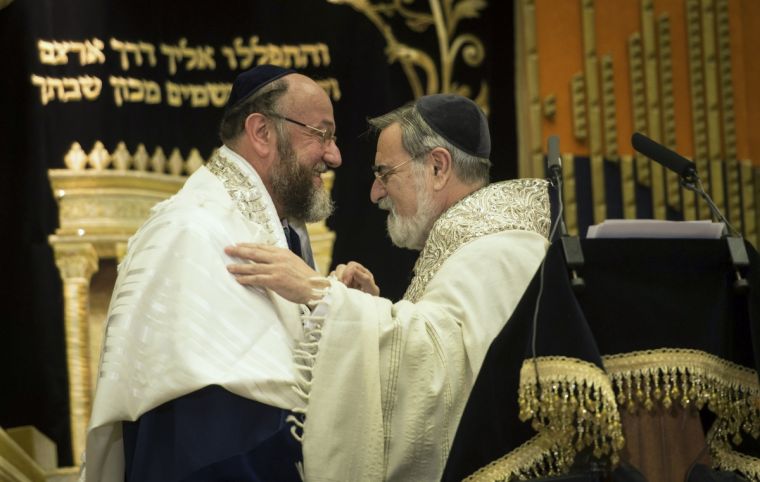Rabbis oppose Britain's Chief Rabbi in faith schools controversy

Nearly 70 British rabbis have written to the new Education Secretary Justine Greening objecting to the Chief Rabbi's plea for new faith schools to be able to select all pupils on a faith basis.
The letter is the first major challenge to the Chief Rabbi, Ephraim Mirvis, since his appointment in 2013.
The Chief Rabbi represents the Orthodox community, and the letter is coordinated by a Reform rabbi.
However, the Chief Rabbi is often regarded as a spokesman for the wider Jewish community. Mirvis is known for his pastoral skills and is popular within the community. It is unusual for there to be publicly-voiced opposition to him of this nature.
Currently the government insists new free schools, even if they are faith schools, must open half their places to children from the local community, whatever their faith.
For this reason, the Catholic Church has not sponsored any free schools and has also called frequently for the 50 per cent cap on faith admissions to be changed.
Dr Jonathan Romain, rabbi of Maidenhead Synagogue and chairman of the Accord Coalition for Inclusive Education, told Christian Today that the letter reflects significant unease within the Jewish world that attempts to integrate children of different faiths are in danger of being undermined by more conservative religious groups.
He said the Chief Rabbi's opposition to free schools "displays a lamentable insecurity in the strength of the Jewish faith to withstand contact with wider society."
It also begs the question of what sort of society will those who are isolated from each other in childhood one day shape in adulthood, he added.
In the letter, the 68 rabbis write: "Some of us are in favour of separate faith schools, some of us are opposed to them, but all of us are keen that the current legislation surrounding the admissions procedure for faith-based free schools is maintained, whereby a maximum of 50 per cent of pupils can be selected on faith grounds, whatever faith that may be.
"We feel that there should be a place in the education system for schools that seek to achieve this balance, so that the children at them can have both a sense of religious roots and openness to others. We feel it will benefit the children concerned and the society into which they will emerge and help shape.
"We call upon you not to abolish the 50 per cent admissions rule for faith-based free schools, and believe that Jewish values can happily co-exist with social cohesion."











